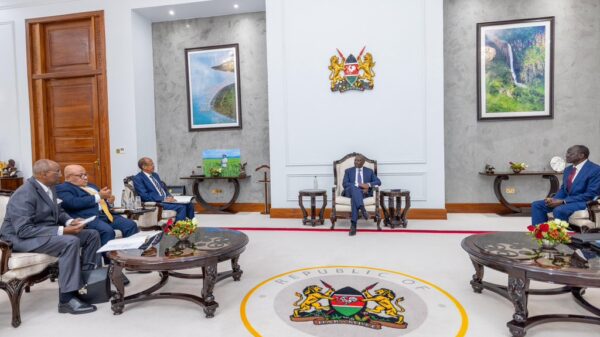What is needed in the current effort to achieve gender equity is not new in Kenya and attempts at passing the two-thirds law have been on for a while. The additional recommendation in the Building Bridges Initiative (BBI) is a consolidation of the many past efforts, and looking at the current different interests, to offer a solution to the spirit of Article 81 where the government is required to develop policies and laws to ensure that, not more than two-thirds of elective or appointive bodies shall be of the same sex. Article 81(b) of the Constitution of Kenya 2010 requires that “not more than two-thirds” of the members of elective and appointive public bodies shall be of the same gender.
What makes people doubt the suggestions and attempts is how in the past, such suggestions have been flouted with impunity and misuse. Good proposals yes, but will they be honoured? That experiences from elsewhere indicate that in addition to the law, there must be policies and respect to some basic national values, for a country to implement some laws. It was easier to start such experiments relating to the two-thirds gender rule in appointive positions, political party nominations and elsewhere, to get the required goodwill to extend the process to elective posts. Other countries have even surpassed the two-thirds gender rule without a law. Just recently, USA President-Elect- Joe Biden announced an all -women communications team.
It must be clear, people are not opposed to affirmative action, nor embracing gender; but are opposed to the insincerity from the political class and Executive especially on the appointive posts so far. We must ask why the political parties failed to observe the two-thirds requirement during party nominations, and the Executive has not respected these appointments as a show of commitment. Rwanda and Ethiopia have so far done this without too much focus on the legal regime.
In fact, Kenya has a bad track record in respecting laws where there is no political goodwill- see the AntI Genital Mutilation Act, the Political Opinion Polls Act and other Acts- without goodwill, even passing the two-thirds gender law will not happen. Remember the affirmative action extended to the youth, people with disabilities, professional groups and marginalized groups, and without the political will, it will never be fully implemented.
According to Sammy Muraya of the Girls and Women Voice Project, gender-related laws are the beginning in creating a broader and much-needed space and development of policy and national values-oriented process to institutionalise affirmative action in the country.
The country needs more national conversation with itself on why the political class are always reluctant to embrace some global practices that have been included in our laws. And gender mainstreaming shoul not be seen as discrimination of men or favouring of women in our way of doing things, but a recognition that there are things we did in the past that disadvantaged women, that we accept to rectify. It not only be confined to the political arena
What we need more is the political will to ensure that the spirit and intent of the gender provisions are realized in the day-to-day lives of the Kenyan people. We must embrace this in our national values and ethos as a country so that formerly marginalised people are helped to catch up- including the youth, the girl child, people with disabilities among others.
The BBI approach has in the section on national values and policies expounded more on this and takes into consideration issues captured differently in movers of past bills on the two-thirds Bill including by Hon Samuel Chepkonga Bill, the Hon Cecily Mbarire Bill, Hon Soipan Bill, and the Hon Neto Bill, Hon Chepkonga Bills and the Hon Duale Bill. Both did not pass, because of political interests.
Gender sensitivity must become part of our national values and engrained in our way of doing things as we strive to ditch some of the cultural practices that held us back. It goes beyond laws and policies but requires constant efforts, commitment and investment from all of us.
Victor bwire works at the Media Council of Kenya

















































